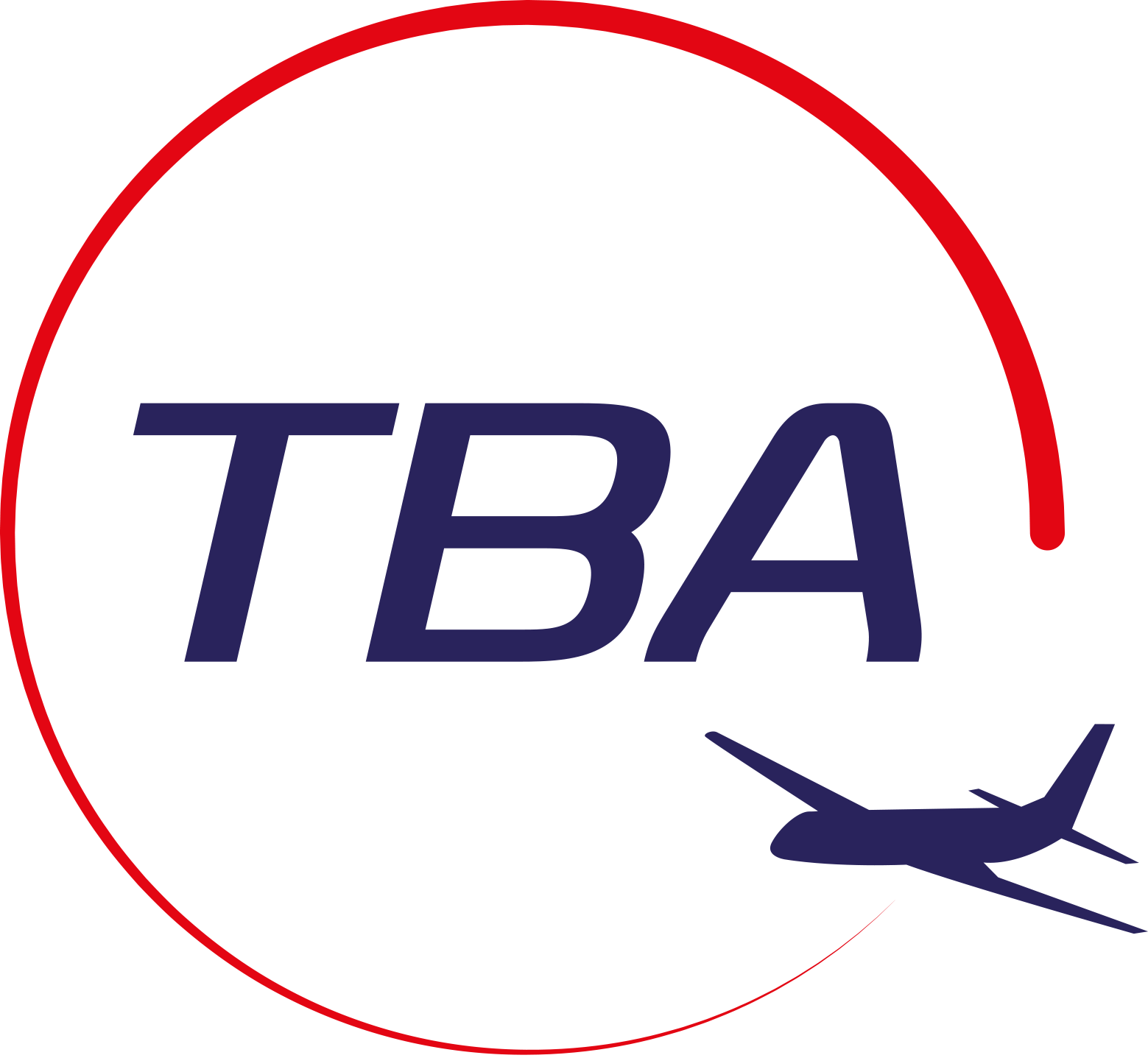Research and knowledge are the first steps for Ghana Travel Business Assistance. Here is a fact file for Ghana to get you started. Contact us if you are looking to start a business in or expand your market to Ghana. We have consultants ready to help you on the ground in Ghana.
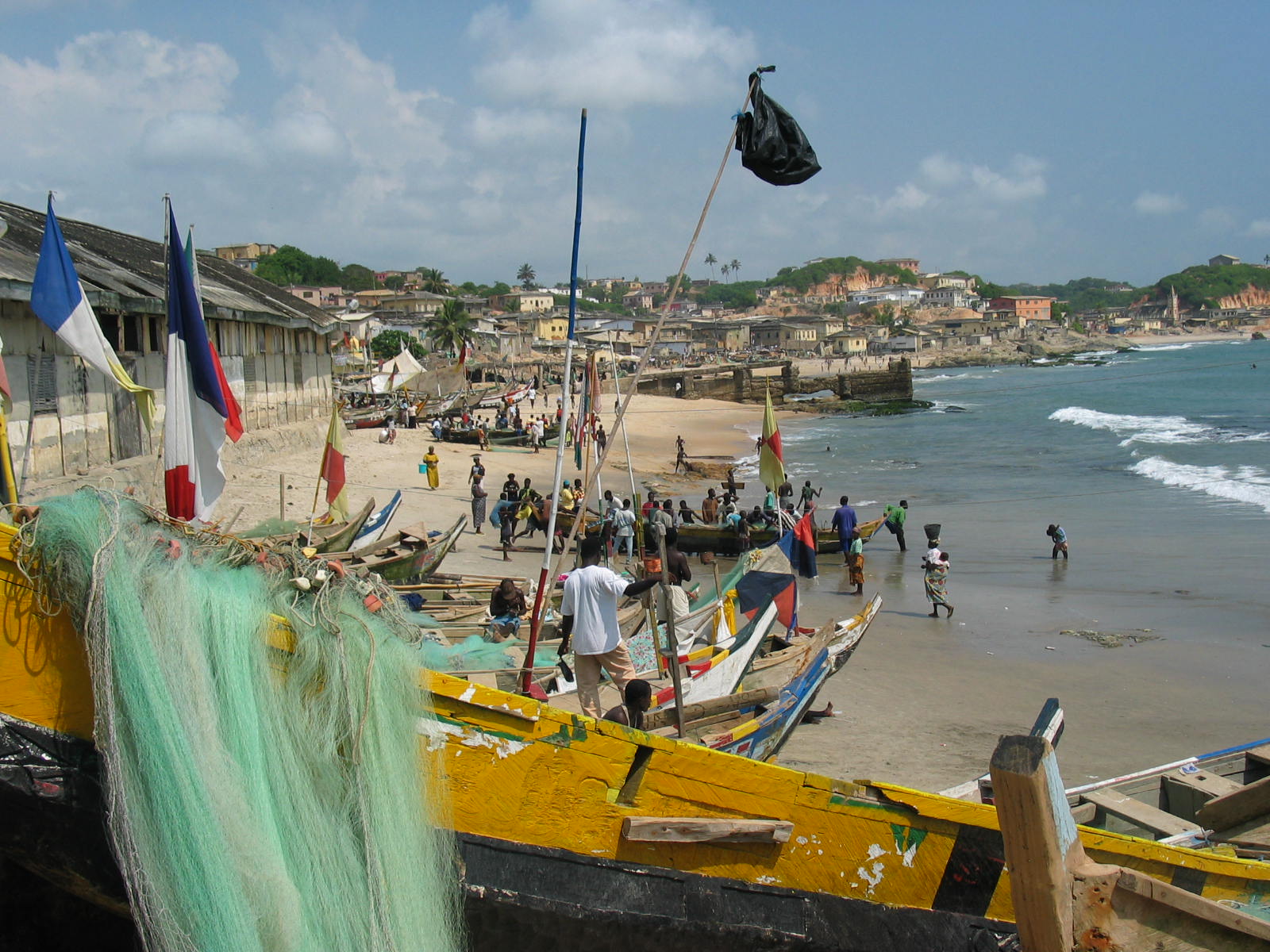
Maximize your business potential abroad – Reserve your free consultation with Travel Business Assistance today.
Basics
Independence: 1957 from the British, Ghana became the first Self Governing country on the continent under President Kwame Nkrumah
Government: The Democratic Republic, considered one of the most stable countries in Africa has had 4 peaceful democratic transfers of power to newly elected presidents under the latest constitution. Even before this most of the coups and power changes were largely bloodless.
Official Language: English
Indigenous Languages: Over 250 with dominant languages being Twi, Fante, Ewe, Ga, Dagbani, and Hausa.
Population: 32.3 Million
Time Zone: GMT
Climate: Tropical
Borders: South- Ocean; East- Togo; North- Burkina Faso; West- Cote Ivoire
Size: 238,533 sq km (92,098 sq miles) about the size of the state of Oregon in the USA.
Religion: Ghana is primarily Christian, but a large portion of the population still practices and believes in some of the traditional beliefs, some alongside Christianity. Islam is also widely practiced in the North and many also have traditional beliefs alongside.
Currency: Ghana CEDI (GHS) currently about 5.77 GHS to $1 (5/4/2021) https://www.xe.com/currencyconverter/convert/?Amount=1&From=USD&To=GHS
![]()
Ghanaian Food
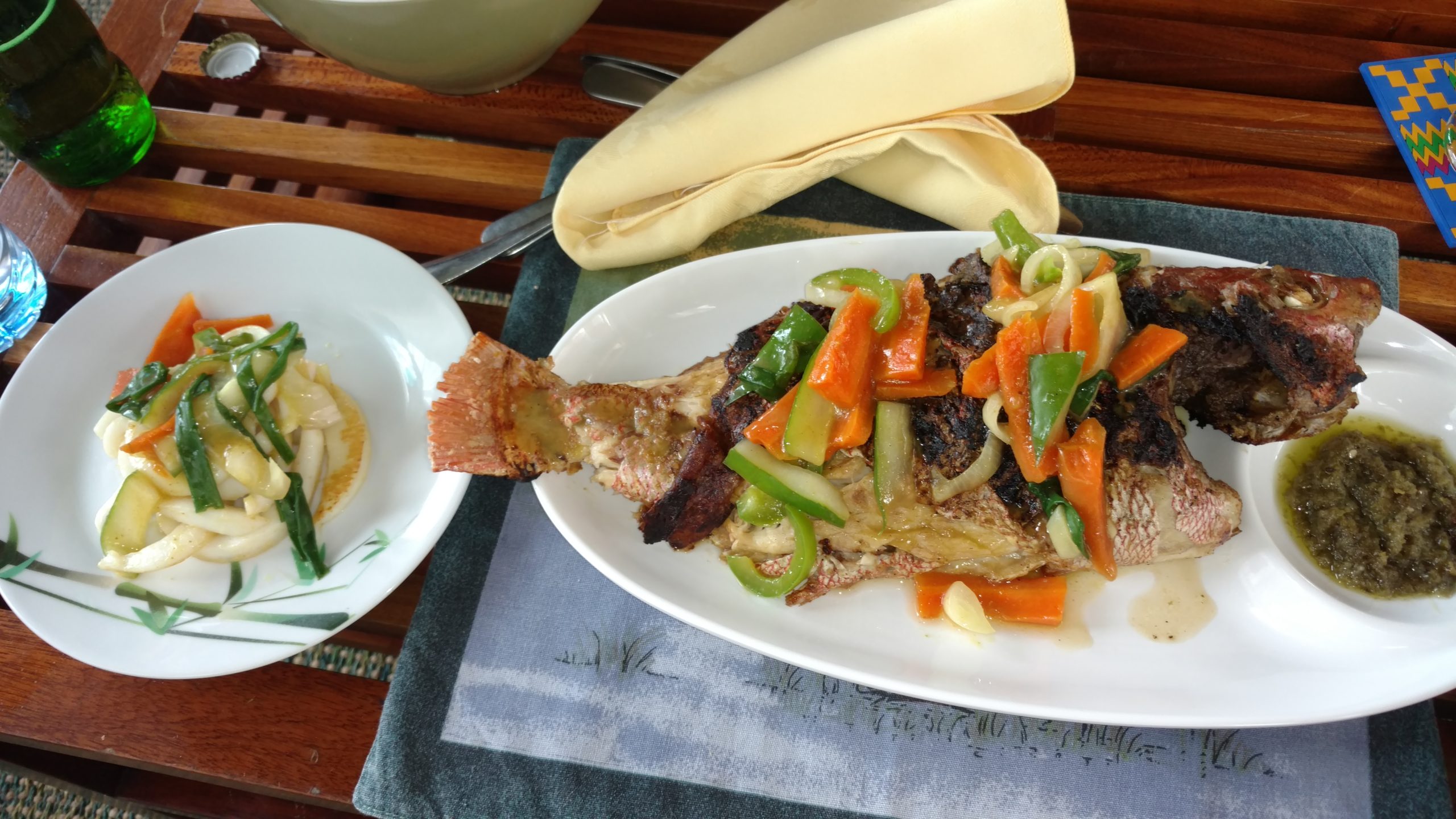
Ghanaian food is known to be very spicy using the scotch bonnet pepper in most of the dishes. There are some staples of Ghanaian food that we will highlight below. But most are formulated by this equation a starchy or carb base and a spicy soup, stew, or sauce to go with it.
Bases:
Jollof Rice- Most West African countries have their variation on this dish and was said to originate from Senegal. It is a rice that is cooked in a tomato and vegetable-based stew. It is often eaten with chick, fish, and sometimes beef.
Plain Rice- Rice is very popular in Ghana and most rice preferred by Ghanaians is imported from Asia including a lot of perfumed rice. This is usually eaten with tomato-based stews and fish, chicken, or beef.
Fried Rice- Even though this is an international dish it is very popular in Ghana once again with chicken or fish.
Red Red- The name refers to the colors of the bean stew alongside fried ripe plantain both exhibit a shade of red. This is among one of the favorites of most visitors. It is great vegetarian or accompanied by meat or chicken.
Waakye- Pronounced watchay, this is black-eyed peas and rice cooked together, it is usually served with a stew, plantains, gari (ground dried cassava), salad, spaghetti, and a black pepper stew.
Fufu- This is by far the most popular dish among Ghanaians. This is cassava and plantain that is pounded until it is a slimy homogenous lump. It is served with soups. The national favorite is probably Fufu with goat light soup.
Banku- This is another starchy lump similar to fufu, but much more firm. It is made of slightly fermented cassava dough and corn dough. It is usually more pleasing to the palate of a foreigner and texture is a big part of this. It is just a little sour from the fermentation but still has a mild flavor, it is usually served with okra stew or pepper sauce with fish or other meats that are grilled.
Kenkey- There are a couple of different forms of kenkey but they are all based on a corn masa type structure. Some are fermented a little more than others and are served hot. Some are wrapped in corn husk, some in banana leaves. It is usually eaten with pepper sauce and fish.
Omo Tuo- Somehow it has gained notoriety as the Sunday special. It is a ball of plain rice that is eaten with the hand and served with usually a peanut butter stew.
Soups:
Light soup- As the name suggests this soup is not heavy or thick it is very watery but very spicy with a tomato and pepper base. People’s favorite is to eat this one with Fufu and Goat meat.
Palm nut soup- This is a very labor-intensive soup to make as it requires pounding the palm nuts cooking them for a long time and straining out the liquid. It is also often eaten with fufu and banku.
Okra Soup- This soup uses a lot of okra and has a very slimy consistency due to this, it can have so many different kinds of meat in it too, fish, goat, beef, chicken, seafood, and crabs. People enjoy it with banku.
Ground nut soup- This is a peanut butter-based soup and can be thick or runny, it is mixed with other soups or eaten alone with any of the bases.
There are so many different other foods that are popular in Ghana. Most tribes have their variations on the different dishes and their specialty.
Things to do in GHana
Accra:
- Makola Market- This is one of the biggest markets in the country and is a labyrinth of stalls and things to buy.
- James Town- An old part of Accra that has a lot of colonial structures, two forts, a lighthouse, and a museum called Brazil House.
- Osu- This is the nightlife, dining, and entertainment center of the city.
- Osu Castle- One of the three castles in Accra, and this was the former seat of government until the new Jubilee House was built.
- Jubilee House- This is the current seat of government, you cannot go in but it is a sight to behold from the roadside.
- Black Star Square- An independence monument.
- Kwame Nkrumah Mausoleum- A monument to the first President of Ghana Kwame Nkrumah and a small museum.
- Accra Art and Cultural Center- A place to see many of the arts and crafts and purchase them.
- Legon Botanical Gardens- A nice green space for an escape from the city, has canopy walkways, and zip lines.
- Accra Mall- If you are missing Western-style malls this is the place to go to shop, eat, and watch movies.
- Labadi Beach- The biggest and cleanest beach in Accra to enjoy some sand and sun.
- Teshie Coffin Carver- The home to worldwide famous theme coffins.
Outside of Accra:
- Cape Coast Castle- One of the better preserved of the 43 castles along the Ghana coast. This one was the seat of the British colonial government and a site for dark tourism as many slaves were kept and shipped from there during the slave trade.
- Kakum National Park- Located near Cape Coast it is the perfect way to visit a dense rain forest, there is a canopy walkway in the tops of the trees, and other trails where you can learn about the traditional medicinal uses of the plants in the forest.
- Elmina Castle- Another colonial castle this time a former Portuguese fort.
- Kokrobite Beach- This is a short drive out of Accra and the cleanest closest beach to Accra. There is good surfing and several beach bars.
Timeline
- 1481- The king of Portugal commissioned the construction of Elmina castle[5]
- 1482 – the Portuguese became the first Europeans to set up trading settlements in Ghana and Sub-Saharan Africa.[6]
- 1598 – the Dutch joined the Portuguese in trading gold to establish the Dutch Gold Coast.
- 1874 – the British declare the coastal area of the Gold Coast as a colony as the British Gold Coast.[6]
- 1946 – First legislative council elections take place.[6]
- 1951- Kwame Nkrumah won the Gold Coast Legislative elections for the 1952 Gold Coast Legislative Assembly.
- 1957 March – Ghana becomes independent with Kwame Nkrumah as prime minister.[1]
- 1960 – Ghana becomes a republic. Kwame Nkrumah becomes the country’s first elected president.[6]
- 1964 – Kwame Nkrumah declares that there will be no other political party apart from the Convention People’s Party (CPP), the one-party state system.
- 1966 – Nkrumah is overthrown in a military coup by Emmanuel Kwasi Kotoka.[1]
- 1969 – Kofi Busiais elected prime minister after a new constitution is drawn.[7]
- 1972 – Busia is overthrown by Col. Ignatius Kutu Acheampong, in a military coup.[7]
- 1978 – Acheampong is made to resign; General Frederick Akuffo takes over.
- 1979 – Akuffo was overthrown in another coup by Flight Lieutenant Jerry Rawlings. Acheampong and Akuffo were tried and executed on charges of corruption.
- 1979 September – Dr. Hilla Limannis was elected as president of Ghana.[8]
- 1981 – Limann is overthrown by Rawlings in a military coup. This was after two years of weak government and economic stagnation.
- 1981-Suspension of the Constitution and the ban on all political parties.[9]
- 1983 – Rawlings implements conservative economic policies.
- 1992 – Referendum approves new constitution introducing a multiparty system.
- 1992 – Rawlings is elected president of Ghana.
- 1994 – 1000 Ghanaians were killed with 150,000 displaced in the Northern Region after a tribal conflict between the Konkomba and the Nanumba ethnic groups over land ownership.
- 1994 – They later sign peace agreements with seven other ethnic groups.
- 1995 – Curfew imposed in the Northern Region after ethnic violence re-erupts led to 100 deaths.
- 1996 – Jerry Rawlings re-elected as president of Ghana.
- 2000 – December – John Kufuoris was elected president of Ghana after defeating John Atta Mills in the presidential elections.
- 2001 May – 126 died due to a stampede in the Accra Sports Stadium. Inquiry implicates the police for overreacting to crowd disturbances.[10]
- 2001 June – The government cancels the celebration of the June 4 revolution (the coup that brought Jerry Rawlings to power).
- 2002 April – Overlord of Dagbon, Ya Na Yakubu Andani, and 30 others killed in Dagbon. A State of emergency was declared by the government, and it was lifted in August 2004.
- 2002 May – National Truth and Reconciliation Commission inaugurated by President Kufuor, to investigate human rights violations during Ghana’s military rule.
- 2003 October – Government approves merger of two gold-mining firms, leading to the formation of AngloGold Ashanti.
- 2004 December – John Kufuor was re-elected as president of Ghana.
- 2006 – Ghana National football team, the black stars play in the 2006 FIFA World Cup.
- 2007 March – Ghana @ 50 celebrations mark 50 years of independence from Britain.
- 2007 June – Ghana discovers oil in commercial quantities. The oil reserves total 3 billion barrels.
- 2008 December – John Atta Mills elected president.[11]
- 2009 July – US President Barack Obama visits, making the first Sub-Saharan country to be visited by the 44th President of the United States.[12]
- 2009 October – Sale of Ghana Telecom to Vodafone the UK[13]
- 2010 December – Offshore oil production begins.[14]
- 2010 – Census by Ghana Statistical Service.
- 2012 July – On July 24, President John Atta Mills John Dramani Mahama was sworn in as substantive president less than 12 hours after John Atta Mills died. State burial for the late president was held from the 8th through to the 10th of August. Attah Mills was buried at the place now known as Asomdwoe Park
- 2016 December- On December 7, 2016, elections were organized and Nana Akuffo-Addowas elected President of Ghana.[15]
- 2017 September- Free compulsory Senior High School was introduced as a flagship program under the government’s administration.[16][17] In that same year, the double track system was introduced to accommodate more students into the free Senior High school program due to inadequate infrastructure.[18][19]
- 2018 November – Ghana hosted the Women’s African Cup of Nations tournament.[20]
- 2018 December- on 27 December there was a referendum to divide parts of the regions to add Six additional regions to the ten regions[21]
- 2019 April – Ghana’s first brain surgery (Endovascular brain aneurysm coiling) at Euracare Advanced Diagnostic and Heart Centre in Accra.[22]
https://en.wikipedia.org/wiki/Timeline_of_Ghanaian_history
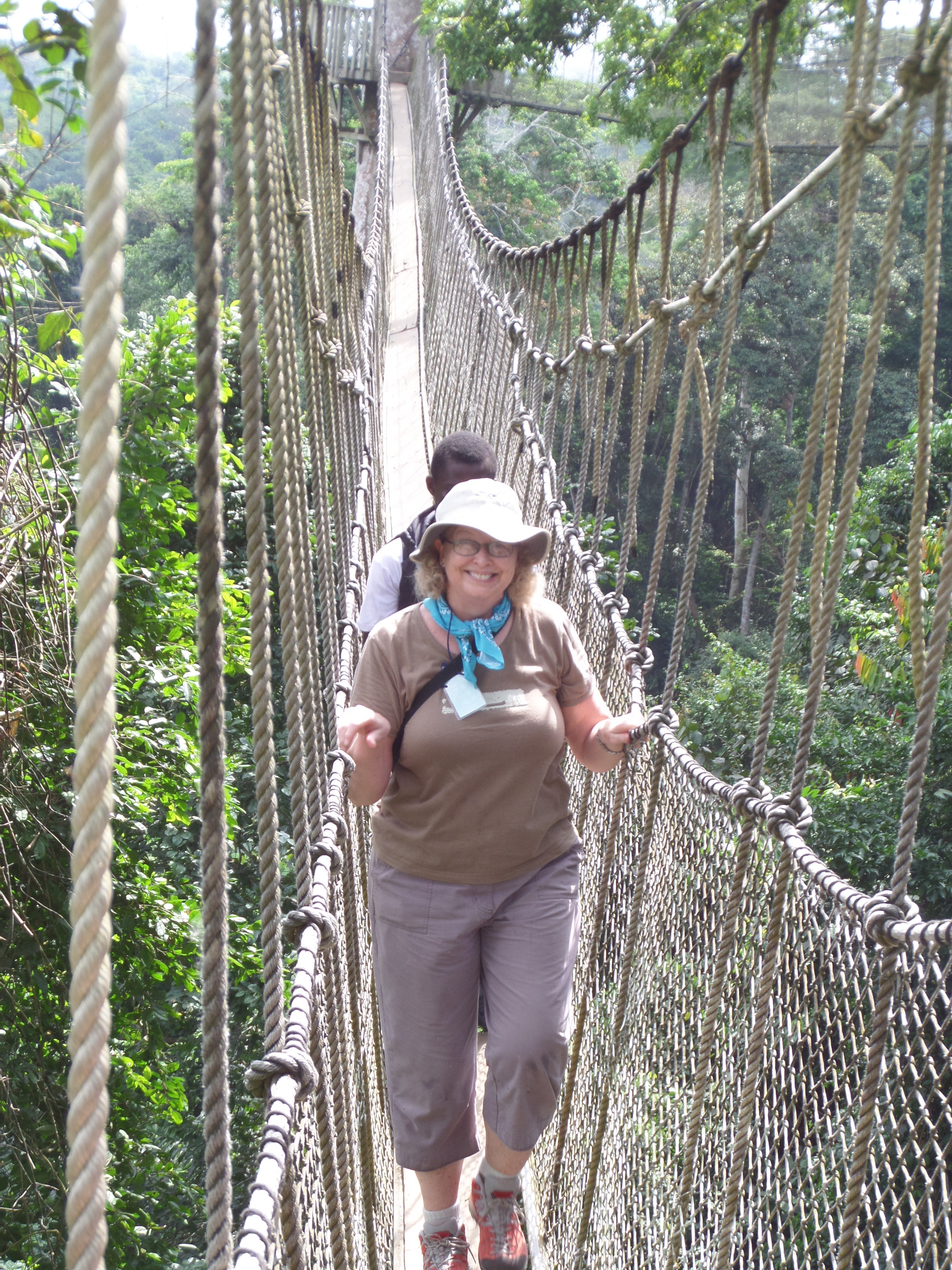
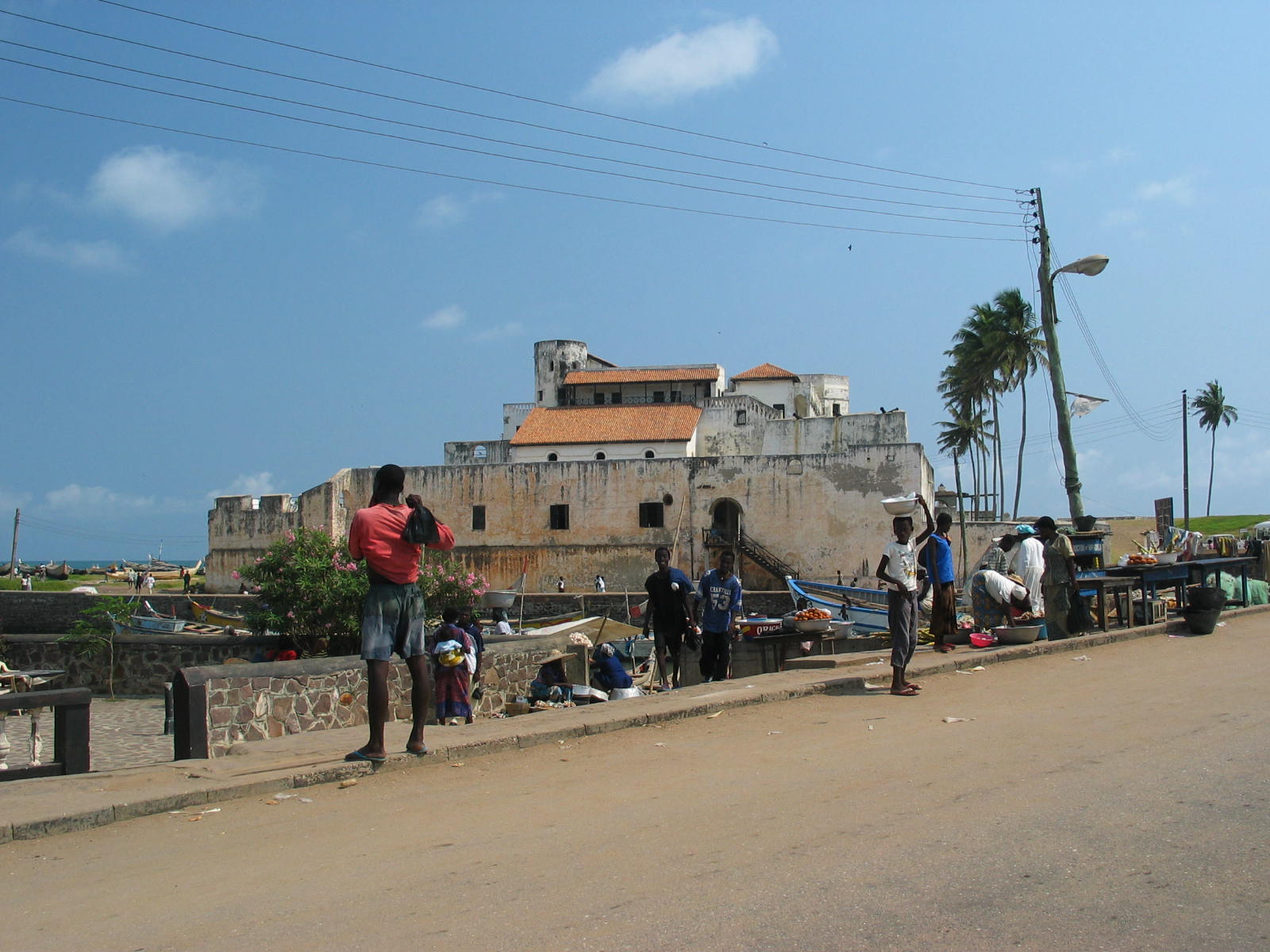

Doing Business In Ghana
Ease of Doing Business Index Scores
Overall score: 60 (2020)
Starting a Business score: 85 (2020)
Trading score: 54.8 (2020)
Enforcement score: 54 (2020)
Law System: British Common Law
Procedures:
- – Registration with Registrar General’s Department (5 working days)
- Certificate of incorporation
- Company Regulation
- Certificate to commence Business
- – Deposit Minimum Equity Contribution Foreign investors to comply with GIPC Act 865 regarding minimum equity requirements
- – Registration with GIPC
- – Immigrant Quota
- – Registration with IRS and VAT
- – Environmental Impact Assessment Certificate Applicable enterprises must register and obtain an environmental permit from the Environmental Protection Agency (EPA).
Business Ownership Capital Requirements:
Joint Ventures with a Ghanaian Partnership US$200,000 Required
100% foreign ownership US$500,000
Trading Activity Export Trade US$1,000,000
Manufacturing Enterprises are exempt from the minimum equity.
GIPC
The Ghana Investment Promotion Centre is the government agency re-established under the GIPC Act 2013 [Act 865] mandated to encourage, promote, and facilitate investment in all sectors of the Ghanaian economy.
Why Ghana?
- Ghana is s stable democracy with a functional constitution that ensures good governance in the country and the ability for individuals to do business.
- A large young labor force, English speaking, affordable, educated, and trainable.
- A competitive minimum wage of about $42 a month. (not recommended living wage is closer to $175 a month)
- 100% foreign-owned companies are allowed
- 100% of profits and dividends after tax can be repatriated
- Duty-free access to US and EU markets through trade treaties
- Good air and sea shipping and logistics connections to the US, EU, and Asia
- Perfect location for strategic and geographic entry into the ECOWAS market with 350 million people.
- Well developed infrastructure
- Already existing diversity of industry
- A stock exchange and abundant banking industry
- A willingness by both government and private sector to interact and do business with foreign companies.
- Very friendly welcoming people.
- A great year-round climate
- Lack of any major natural disasters or dangers
Corporate Tax:
- All companies 25%
- Income from non-traditional exports 8%
- Hotels 22%
- Financial Institutions Income from loans to farming enterprises 20%
- Income from loan for a leasing company 20%
Tax Holidays and Exemptions:
(From Start of Operation)
Real Estate 5 years
Rural Banks 10 years
Agriculture and AgroProcessing
Cocoa farmers and producers’ Income tax-exempt
Cattle ranching 10 years
Tree cropping (e.g. coffee, oil palm, shea butter, and coconut) 10 years
Livestock excluding cattle and poultry 5 years
Fish farming, poultry, and cash crops 5 years
Agro-Processing – converting fish, and livestock into edible canned products 5 years
Waste processing (including plastics and polythene) 7 years
Free Zones Enterprise/Development 10 years & maximum, 25% thereafter
into edible canned products 5 years
Waste processing (including plastics and polythene) 7 years
Free Zones Enterprise/Development 10 years & maximum, 25% thereafter
Health
Before Coming to Ghana a valid yellow fever Vaccination should be obtained and documented on the yellow vaccine card that should accompany your passport.
It is strongly recommended that you visit a travel vaccination clinic and get other vaccinations and a prophylaxis for malaria.
COVID-19
Ghana is open to inbound travelers but you must have a valid PCR test before boarding your flights to Ghana, the results of these tests must be uploaded the Ghana’s appropriate website before arrival. Before boarding your flight to Ghana you will also need to pay ahead $150 for a test upon arrival.
When leaving Ghana you must get a PCR test within 72 hours of travel and upload the tests to the official website and bring them to the airport for departure.
IMMIGRATION
Before arriving in Ghana it is highly likely that you will need a visa. Either business or tourism visa depending on your nature of travel and the level of business you will be undertaking. You should start this process well ahead of time as this could delay your whole trip. It is advisable to do this at least a month before travel to give yourself extra time just in case there are any problems with the submission. Most countries with a consulate or embassy do offer expedited services for this.
Also if your trip is very time sensitive we can always help you arrange for visa upon arrival or to get you one in the fastest way possible.
Ghana Travel Business Assistance
Are you planning to move your business to Ghana or open up Ghana as a new market? Perhaps there is a conference in Ghana you need to attend and you need some help. We are here for your Ghana Travel Business Assistance.
